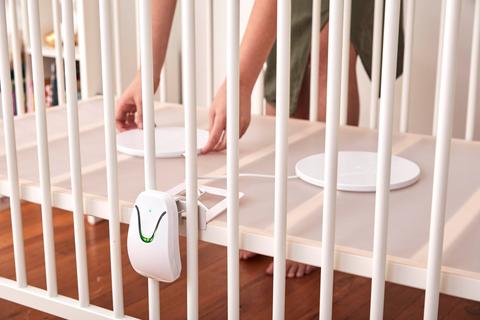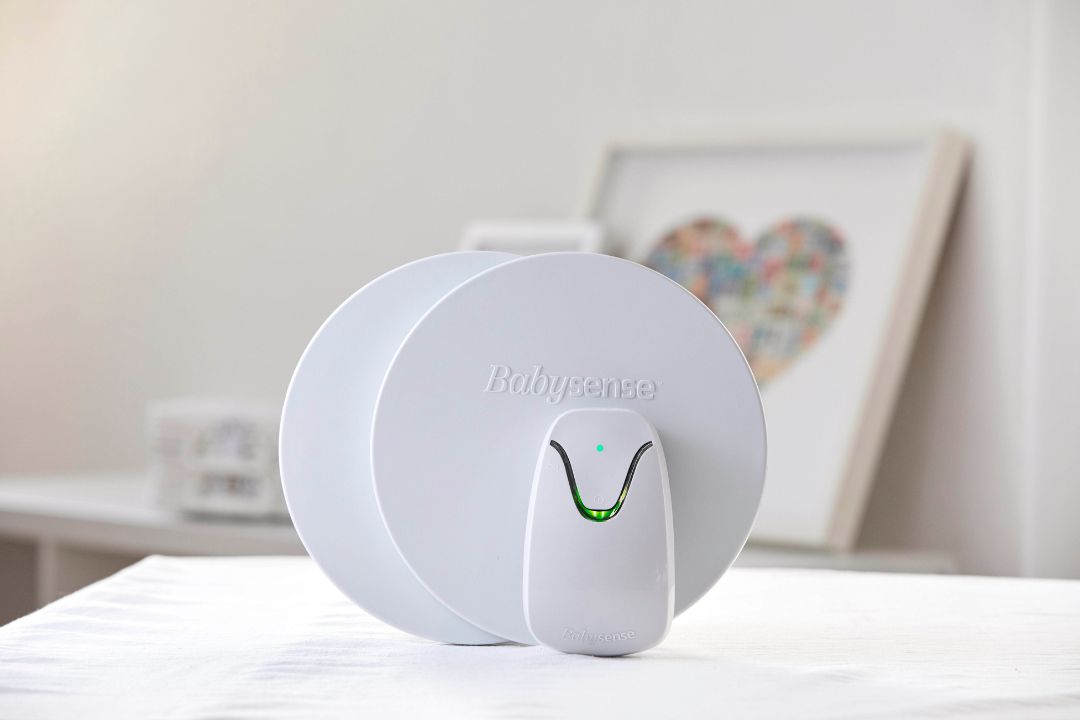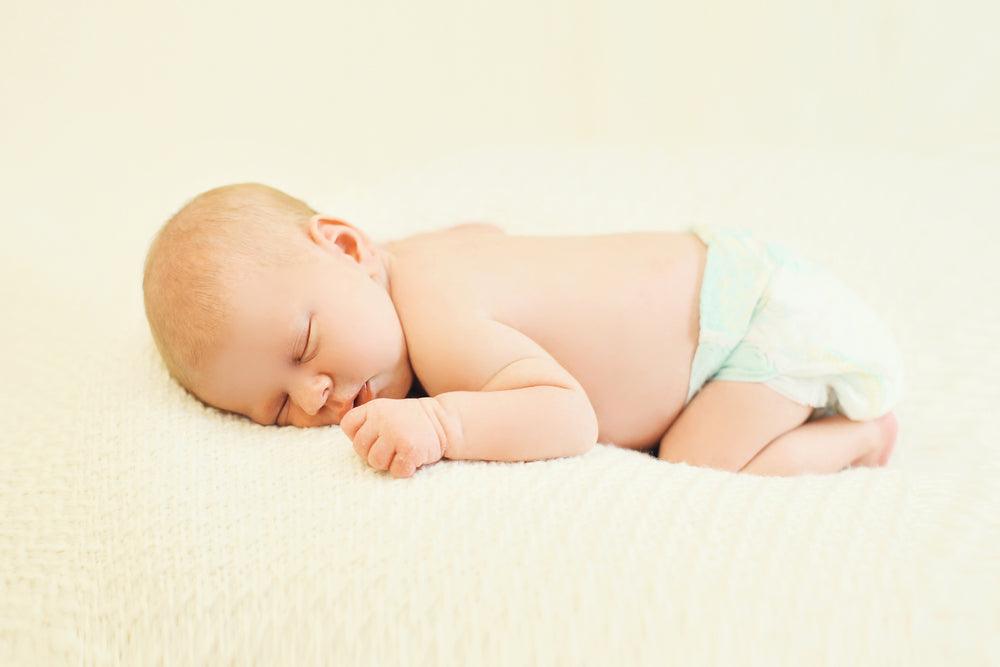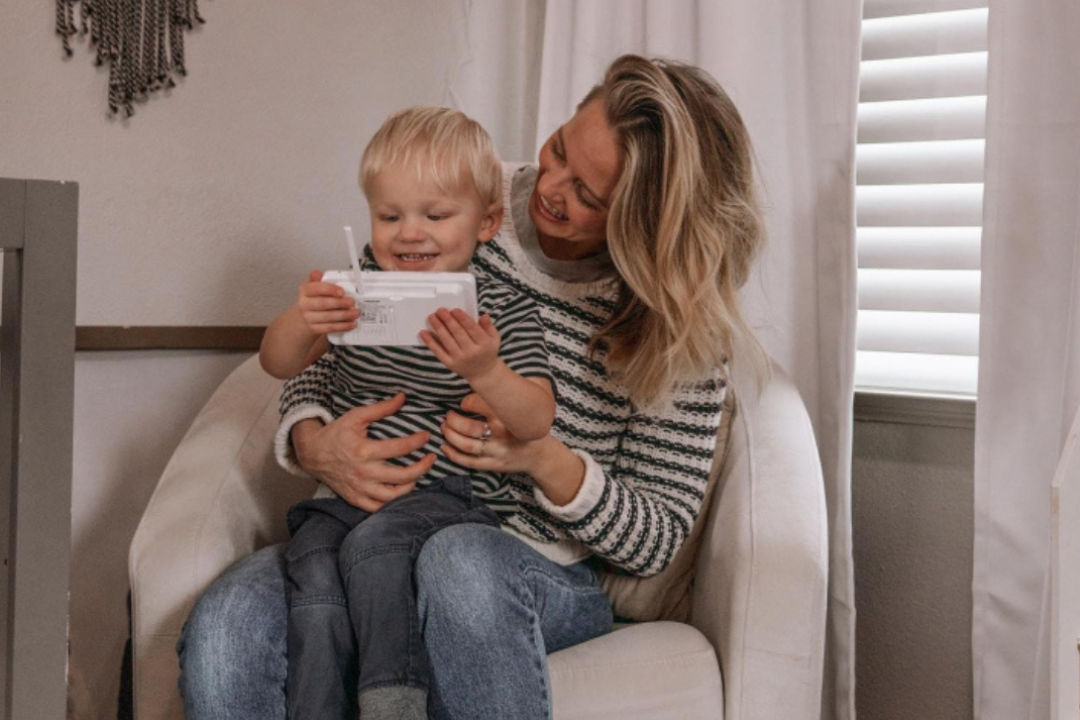Babies are fragile, and every parent wants to protect their child and bring them safely through infancy.
Injury and illness are misfortunes that many parents can prevent and, most times, know how to treat. But there is one fear that parents all over the world have because it happens when the child is supposed to be safest: the fear of an infant dying in their sleep.
Although rare, this horror is common enough to have a name. SIDS stands for Sudden Infant Death Syndrome. It is what happens when an otherwise healthy infant suddenly dies without any determinable reason.
Babies who are born prematurely are more susceptible to this syndrome, as are any babies who come after an elder sibling who passed away due to the condition.
Other complications that force your baby to require oxygen or have difficulties in breathing also put them at risk of this.
These are difficult things to even consider, but they need to be discussed because these mortality rates can be reduced.
Why Is It Important to Monitor Your Baby’s Breathing?
Monitoring your baby’s breathing is important because:
- It helps to limit your fears of SIDS
- You will have less anxiety as you put your baby to sleep
- Provides you with extra peace of mind knowing that your little one is in fact breathing and sleeping safely
- You will be alerted of a potential issue, which could make the difference between something minor and a critical situation
So how can you monitor your baby’s breathing?
Different Ways You Can Monitor Your Baby’s Breathing
The simplest way you can monitor your baby’s breathing is by sleeping next to them.
Although this is also the cheapest way to monitor your baby’s breathing, sleeping with your baby is not always great because:
- The pillows and blankets you sleep with are not suitable for the child
- A parent who is meant to be monitoring the child may fall asleep due to fatigue.
The bedding poses a danger to your baby because the heavy material may cause “re-breathing.” Re-breathing is when a baby breathes in the carbon dioxide they breathe out more than oxygen. This can lead to low oxygen levels in the blood, which puts the breathing system on overdrive. This strain on the baby’s small lungs is sometimes fatal.
This leaves us with the option of technology. Everybody knows that when human precision fails, intelligent machines kick in. The great news is that there are highly efficient machines in the market for monitoring your baby’s breath already.
Here are some of the reasons why these devices are the safest way to monitor your baby’s breathing.

Reasons Why Baby Breathing Monitors are the Best Way to Monitor Your Infant’s Breathing
Here are some of the reasons why using a baby monitor is the best way you can monitor your baby’s breathing.
They are Automated
Baby breathing monitors are not prone to human error. They pick up anomalies fast and put you in a position to deal with them and keep your baby safe.
Baby breathing monitors allow no room for error; they need no sleep and cannot accidentally forget to send you any alerts.
Baby breathing monitors get the job done.
They Run the Whole Night
As mentioned above, baby breathing monitors are inanimate machines that do not need sleep. That means they also do not accidentally go off because they are tired.
All you need is to make sure that your baby's breathing monitor is fully charged or has working batteries.
Allows Remote Monitoring When Used In Conjunction With A Baby Video Monitor
Baby breathing monitor bundles come with quality LCDs that allow you to watch your baby in at least 480p.
This real-time display of what your baby is up to is reassuring. You can see if your infant is struggling, if their blanket is over their head, and—when they cry—what could be bothering them.
Although this is not directly related to breathing, being able to watch your child from another room is comforting. Being able to watch your baby with respiratory problems is extra comforting as well.
Closed-Loop Technology
Closed-loop technology is used on baby breathing monitors to keep away hackers. These WiFi-free connections are hack-proof, providing security for your baby.
Open-loop technology can also allow a skilled hacker to tamper with other devices in your home and you should take the necessary precautions to reduce this risk. This kind of hacking is a cyber security threat that is best avoided, especially with babies in the house.
Night Vision Capabilities
Going in to check on your baby usually feels like walking on eggshells. Any noise, light, or movement has the potential to turn a routine check-up into a nightmare.
Sometimes, when the monitor alerts us about our baby being in distress, we just need to go and maybe move a blanket, a pillow or turn the baby back on its back. Other times, it’s nothing at all apart from a brief anomaly, meaning you do not need to go to the baby’s room.
However, going to your baby’s room to check on them becomes a complicated process when we have to turn on the lights. Choosing to keep them off is also a risk because you could drop something as you creep about in the semi-darkness, waking them up.
Some baby breathing monitor bundles are designed to help combat this. These models come with video monitors that have built-in night lights and IR night vision (infrared night vision). These technologies allow you to see your child in the darkness.
Two-Way Talk Capability and Lullaby Player
Some baby breathing monitor bundles come with two-way talk capabilities that allow you to soothe your baby with your voice while both being in different rooms. The baby video monitor in these baby breathing monitor bundles also have some lullabies and white noise music that you can play for your baby to calm them down.
What is the Best Way to Use a Baby Breathing Monitor
How can we maximize the benefits of these devices for our babies?
Consult Your Doctor
Most babies are healthy enough not to need baby breathing monitors, but why take the risk? SIDS comes with no warning. At the very least, your infant may have turned on their belly and is having a hard time breathing.
Since these devices are not invasive, they are generally safe. The Babysense breathing monitors come equipped with an under the mattress Non-Contact, Non-Wifi, hassle-free Breathing Sensor.
The kind of device you will be required to use will be dictated by the level of risk—something only your doctor can tell you.
Your doctor can also advise you on how to avoid SIDS affecting your infant if you have had any children affected by the syndrome prior.
These extra precautions help you make the baby's breathing monitor as effective as possible.
Consider a Non-Contact Breathing Monitor
Whilst some baby breathing monitors will require you to attach pads to your baby, these aren’t favoured by all parents and the Babysense range contains only non-contact monitors - these can be placed under your baby’s mattress and we are the brand of choice in top hospital systems and over 1 million homes.
Make Sure the Alert Mechanism Can Wake You Up
This may seem insignificant, but if you do not wake up when the baby breathing monitor’s alarm goes off, then it serves no purpose. You need to be able to hear it when you fall asleep.
You also need to make sure that during the day, as the baby sleeps, the baby's breathing monitor is near you. Even if it can’t be near you, then you should first test it out to see how far the sound of its alarm projects. This will be useful in figuring out how far away you can leave it when you are too busy. Also, you could find a central room from which you can hear the monitor regardless of where you are in the house.
Stay Safe
Having a baby breathing monitor is one of the best ways of being a prudent parent. Not only are you making sure your bundle of joy is safe from any sudden anomaly, but also improving the quality of your sleep to be more present in your parenting.
Baby breathing monitors are also easy to use, safe and efficient, making them a trustworthy parenting assistant available for all.
If you worry about something happening to your baby as they sleep, a baby breathing monitor is an excellent solution.



